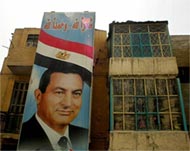Summit delegates seek unity in diversity
The Summit of South American-Arab Countries will seek to bring together two diverse regions that share many of the same political and economic challenges.

The first full meeting in Brasilia on 10 May is above all a proposal of cooperation between Latin America and the EU’s poorer southern neighbours.
And despite the huge diversity found in Latin American, North Africa and the Middle East, organisers say all 34 countries participating share a common vision of peace and economic development with social justice.
According to the event’s website, the 12 South American countries and 22 Arab ones attending all “base their actions on the respect for international law and multilateralism. They fight for an inclusive, tolerant, multi-polar world more conducive to development”.
But while organisers stress historical ties between the Arab and Latin world through 700 years of contact in the Iberian peninsula, there are plenty of modern-day considerations.
Egypt’s Al-Ahram newspaper reports there are 10 million people of Arab descent living in Brazil, in addition to another seven million in other countries around the continent.
Political considerations
There are plenty of major political issues of international importance on the agenda. One of the main themes will be reform of the UN Security Council.
 |
|
Egypt is seeking a permanent |
Brazil and Egypt both hope to win permanent seats as the most-populous nations in their respective regions.
But a 28-page draft final declaration of the summit – drawn up in Morocco last March – shows even weightier political issues will be tackled.
In a section entitled Strengthening Bi-Regional and Multilateral Relations, a summit draft document calls for a conference defining “terrorist crime” that would distinguish “terrorism from the legitimate right of peoples to resist foreign occupation with a view to reach national independence”.
And with nations such as Venezuela, Iraq and Palestine all involved, the debate is likely to cover sensitive issues of fundamental international interest and importance.
Seismic event
Indeed, in excited anticipation of the event, some see the summit as a first move in the formation of a new global power bloc. In March, Brazilian Foreign Minister Celso Amorim said the meetings would be “a small seismic movement” in the global correlation of political power.
|
“The conference will serve to open Arab world doors to Brazil” Brazilian Foreign Minister |
However, Arab League chief Amr Moussa played down talk of a major political union.
He told Aljazeera.net that suggestions that South America, as a significant agricultural trade bloc, and the Arab world, as a major oil exporter, would attempt to play a defining role in the world’s need for energy and food, were fanciful.
He outlined a much humbler economic objective by Middle Eastern countries to increase the volume of business with Brazil to about $16 billion a year by 2010.
“The conference will serve to open Arab world doors to Brazil,” he concludes.
About time
And, according to president of the Arabian-Brazilian Chamber of Commerce Antonio Sarkis, it is about time.
Sarkis says that, to date, trade between the two regions has proven to be a logistical nightmare. “Basically, there are not enough means of transport to serve exporters to Arab countries.
“We still do not even have direct flights between the majority of the summit’s participating countries,” he says.
Other topics for discussion include the growth of tourism. According to Embratur, the Brazilian Tourism Agency, only 29,400 tourists from the Middle East came to Brazil in 2004.
Tourism and culture
Sidney Alves Costa, an adviser at the Brazilian Tourism Ministry and the person in charge of coordinating the ministry’s efforts for the summit, said Arabs need more detailed information about South America.
 |
|
Football is a passion for South |
“Arabs need to realise there is much more than just carnival and football in Latin America,” he said, adding that Brazil alone hopes to attract at least 100,000 Arab tourists by the end of 2005.
But the two-day-summit will not be dominated by politicians and economists only. Artists will also get their chance to cement the new alliance.
Delegates can enjoy a whole week of Middle Eastern and South American films as well as a photographic exhibition that documents the Arab presence and history on the continent.
Additionally, both Morocco and Peru are both putting on food festivals, while Latin American musicians will get to perform traditional guitar music.
By the time everything ends on 11 May, delegates will very likely feel that the foundations for a new alliance are firm.